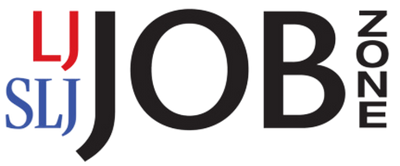Job Description
To provide peer support services as part of a multi-disciplinary team to persons with mental illness and/or substance abuse problems. Service provision will focus on working with clients to enhance their recovery. Service is provided to individuals or groups.
Supervision Received:
- Reports to Clinician and Peer Supervisor. Bi-weekly coaching sessions with Peer Supervisor in person or via Zoom.
Duties:
- Provide individualized, ongoing guidance, coaching and support.
- Provide training in the use of personal and community resources.
- Assist in developing formal and informal community supports.
- Assist the person served in increasing social support networks of relatives, friends and/or significant others.
- To offer encouragement in times of crisis.
- To advocate on behalf of persons with behavioural health problems to protect the client’s rights and to assist in reducing associated stigma.
- Work in cooperation with other providers, family members or significant others involved in the client’s recovery plan.
- Attend Agency staff meetings, other office-related duties, and Individual Supervision.
- Attain established standards of productivity.
- Observe all rules of confidentiality relating to clinical information and treatment, both internally and when dealing with external agencies and/or individuals.
- Responsible for understanding client’s rights policy and procedures.
- Participate in staff training and development.
- Always maintain professional standards.
- Observe the guidelines established within the Code of Ethics and Conduct.
- Provides quality, sufficient, and appropriate services
- Participates in case presentations at weekly meetings
- Complies with all policies and procedures
- Coordinates community referrals and services outside of
- Assists in helping clients to meet personal goals
- Performs any other duties assigned by the leadership or Care Manager
- Works directly with the counselling team (when applicable) to assist in developing a plan of care that is individualized for the client, which demonstrates collaboration with the treatment team
- Documents all interaction with the client including any assessment findings, physical/psychosocial responses to interventions and progress towards problem resolution
- Refers clients to appropriate clinical and/or medical staff within the organization and in the community in an accurate and timely manner
- Provides transportation to appointments
- Explains the nature of the program and the necessary rules
- Meets with leadership regularly to report client outcomes
Requirements:
- High School Diploma or GED required
- Past or present consumer of mental health or substance abuse services with a history of managing one’s own illness.
- Awareness of the importance of recovery in living with a mental illness or addiction problem.
- Experience working directly with people in a service-oriented field is beneficial.
- Active membership in a consumer advocacy or self-help group.
- Ability to work well with others.
- Familiarity with the community.
- Ability to interact with various types of people.
- A sound understanding of mental health and/or substance abuse problems and treatments.
- Personal traits which include patience, tolerance, caring, maturity and understanding
Knowledge, Skills, and Abilities:
- Knowledge of proper use of equipment and supplies.
- Ability to use good judgment.
- Interpersonal working relationships with all members of the team.
- Ability to maintain client confidentiality.
- Take direction, demonstrate good rapport and cooperative relationships with all members of the team, respond to clients and co-workers with concerns and promote group morale.
- Focus on assigning tasks, seeking and implementing improvements as necessary.
- Protect clients from behaviour that could damage themselves or others.
- Always take universal precautions.
- Act in a professional manner, demonstrating respect and understanding of the community and neighbourhood.
- Complete and follow through with tasks and assignments, meet expected deadlines, and meet attendance guidelines.
- Role model professional practice.
- Dress appropriately and professionally.
- Meet or exceed productivity standards set by the agency.
